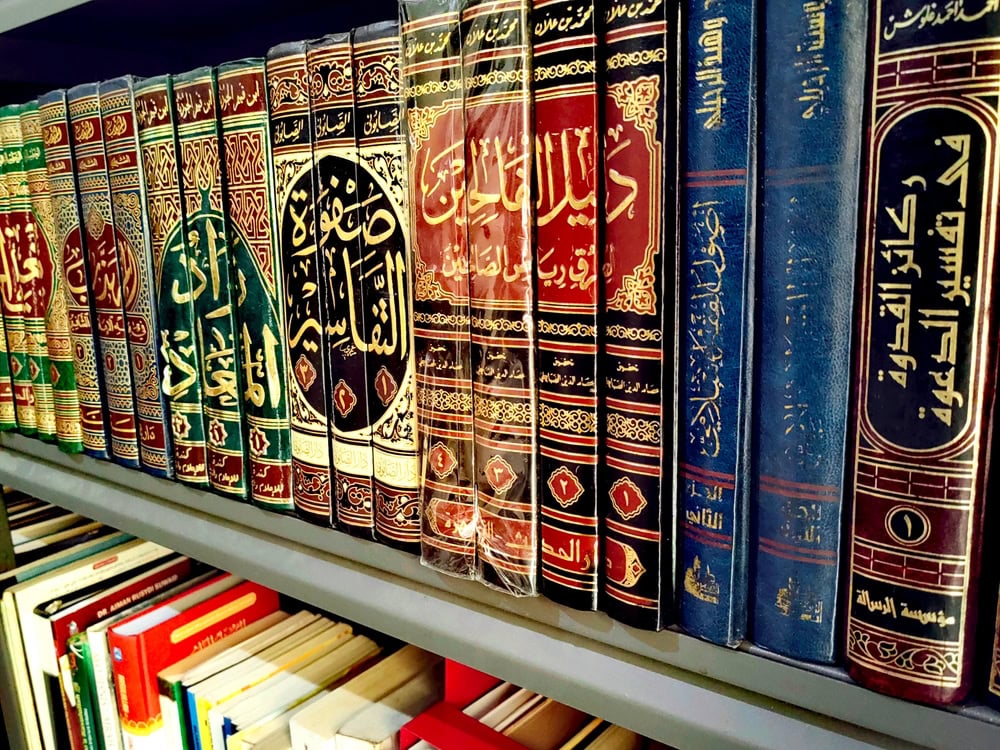Is the Story of Kinana Ibn al-Rabi‘ Authentic?
Answered by Shaykh Yusuf Weltch
Question
Is the story of Zubayr Ibn al-‘Awwam torturing Kinana Ibn al-Rabi‘ with hot steel at the orders of the Prophet Muhammad (Allah bless him and give him peace) authentic?
Answer
In the Name of Allah, the Most Merciful and Compassionate
This story does not exist in any of the authentic Islamic sources. After very superficial searching, it seems the quote you mentioned has been used by many anti-Islam polemicists to accuse the Prophet Muhammad (Allah bless him and give him peace) of a heinous act.
Reference Texts for Scholars
These polemicists, jump at the chance to use the Prophetic Biography of Ibn Ishaq as their source to malign the Prophet (Allah bless him and give him peace). It is important to realize that although he was the earliest to collect narrations on the Prophetic biography, Ibn Ishaq often brings weak or fabricated narrations. This is well-known by the scholars of Islam, as explained below.
Proof of Fabrication
Why? Ibn Ishaq was the first to gather the narrations concerning the Prophet’s biography: his goal was to gather narrations for later scholars to reference and sift through. This was a great service to Islam, however, it was not meant as a rigorously authenticated account of the Prophetic biography as opposed to later sources.
The narration of Kinana being tortured has no chain of transmission for authenticity to be verified. Others who followed Ibn Ishaq in this, like Ibn Sa‘d, also do not have a chain of transmission for this narration as they merely cite Ibn Ishaq.
Other Proofs
1) Other aspects of this narration do not make sense as well. For instance, if this narration were true, the enemies of Islam – who were waiting for any slip up from the Prophet (Allah bless him and give him peace) – would have immediately jumped at the chance to say: “Muhammad commands mercy and justice but is himself unjust.”
2) It is known that the original copy of Ibn Ishaq (Allah have mercy on him) no longer exists. It is only somewhat preserved in later works such as Ibn Hisham and Tabari who cite Ibn Ishaq.
3) Ibn Ishaq was not known to write down his narrations; they were all orally transmitted. Which in itself is not problematic but it adds to the uncertainty of the authenticity of the narrations.
4) Many of the early scholars, at the forefront of them Imam Malik Ibn Anas, spoke against Ibn Ishaq for various reasons, not the least of which was narrating fabrications (dajal and kadhib). While others spoke well of him, such as Zuhri and Sufyan Ibn ‘Uyayna (Allah be pleased with them all). This adds more mystery regarding the credibility of his work and the narrations it contains. [Dhahabi, Tadhkirat al-Huffaz]
The following statement of Imam Dhahabi (Allah have mercy on him) regarding Ibn Ishaq seems to be the most objective. This is in part, because the scholars tending to not give much weight to the criticisms of contemporary scholars: which the above were.
Imam Dhahabi said, “Ibn Ishaq is a reference point for the battles of the Prophet (Allah bless him and give him peace) and his biography, although he is known to put forward his own isolated opinions (yashudhdhu bi ashya). He is not a proof in legal rulings… with that, he can be used as supporting evidence (yustashhad bihi).” [Ibid.]
Summary
Being that none of the early scholars aside from Ibn Ishaq narrate this story along with the other points of evidence, this story holds no weight and it is safe to say that it is a fabrication.
However, one should not discredit Ibn Ishaq for this, especially in light of the methodology behind his work being to merely gather all that has been said about the Prophet’s life as a reference text for scholars to sift through. May Allah accept his effort and bless him.
This work however would have been better left untranslated as it was meant for scholars.
Hope this helps
Allah knows best
[Shaykh] Yusuf Weltch
Checked and Approved by Shaykh Abdul-Rahim Reasat
Shaykh Yusuf Weltch teaches Arabic, Islamic law, and spirituality. After accepting Islam in 2008, he completed four years at the Darul Uloom Seminary in New York, where he studied Arabic and the traditional sciences.
He then traveled to Tarim, Yemen, where he studied for three years in Dar al-Mustafa under some of the most outstanding scholars of our time, including Habib Umar Bin Hafiz, Habib Kadhim al-Saqqaf, and Shaykh Umar al-Khatib.
In Tarim, Shaykh Yusuf completed the memorization of the Quran and studied beliefs, legal methodology, hadith methodology, Quranic exegesis, Islamic history, and several texts on spirituality. He joined the SeekersGuidance faculty in the summer of 2019.
